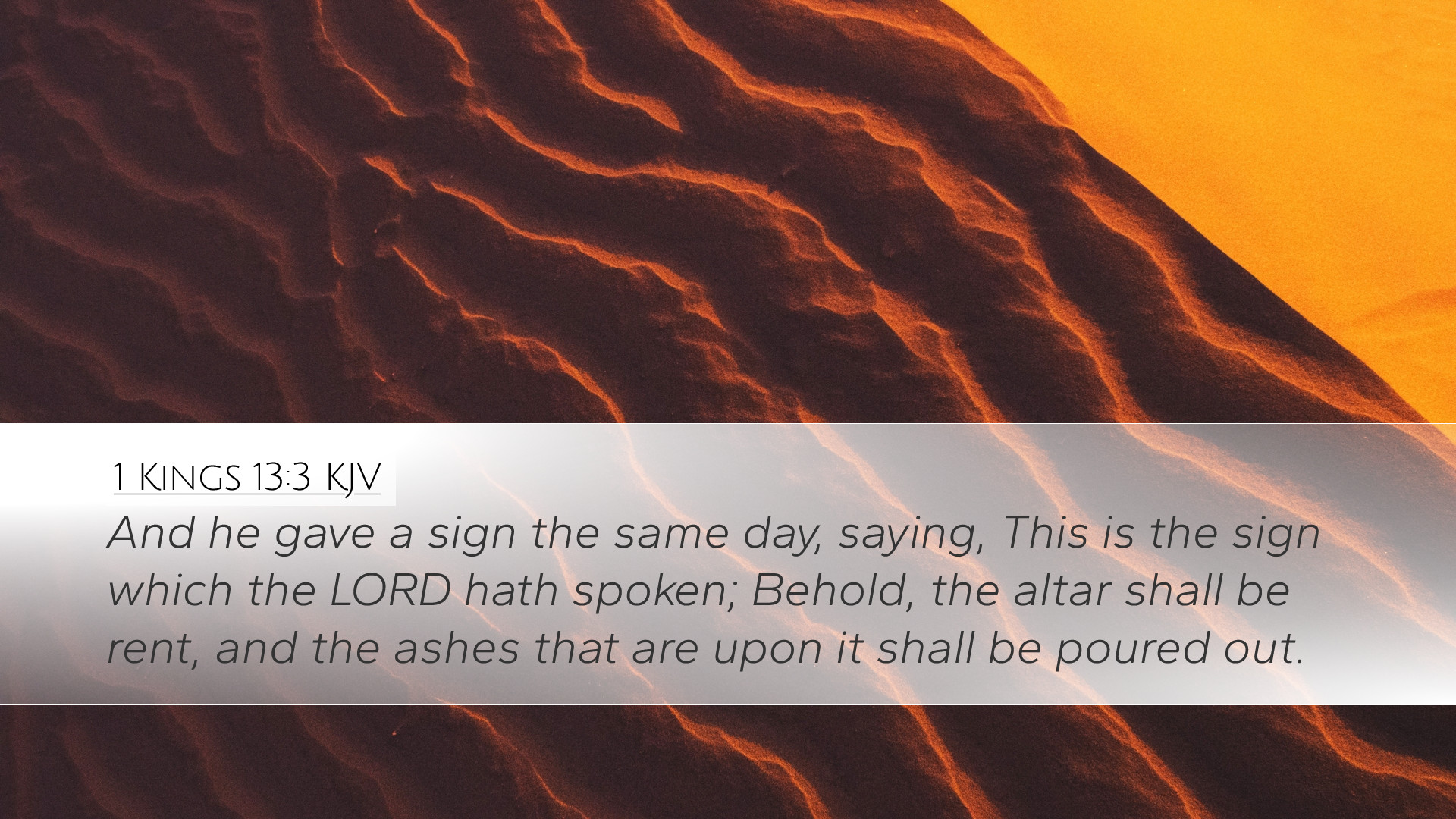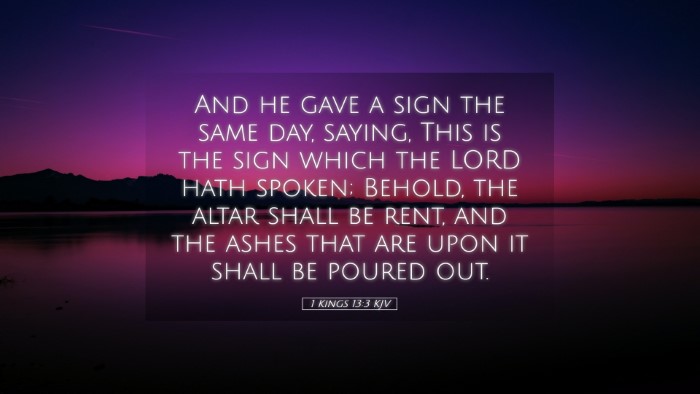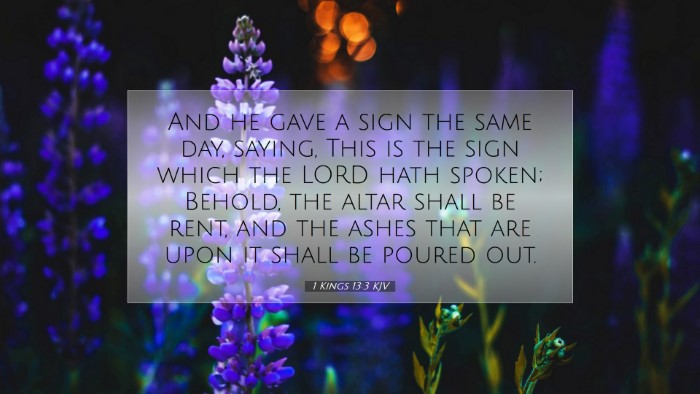Commentary on 1 Kings 13:3
Verse Reference: 1 Kings 13:3 - "And he gave a sign the same day, saying, This is the sign which the Lord hath spoken; Behold, the altar shall be rent, and the ashes that are upon it shall be poured out."
Historical Context
This verse is situated within a significant narrative concerning the prophetic ministry in Israel during the divided kingdom. In the time of Jeroboam, the first king of the northern kingdom of Israel, idolatry was rampant, and the true worship of Yahweh was challenged. The altar at Bethel exemplified the false religious practices instituted by Jeroboam.
The Role of the Prophet
Prophetic Authority and Revelation: The prophet in this chapter delivers a strong message from God, illustrating the authority with which Old Testament prophets operated. Matthew Henry emphasizes that true prophets were called and sent by God, often possessing the ability to present signs that confirmed their divine commission.
- Divine Mandate: The command given by the Lord to this unnamed prophet signifies the importance of divine calls in prophetic ministry.
- Judgment and Sign: The sign of the altar's destruction serves as both a warning and a declaration of judgment against Jeroboam's idolatry.
Spiritual Implications
Symbolism of the Altar: The altar represents not only the worship system established by Jeroboam but also the spiritual state of the nation. Adam Clarke notes that God often uses tangible signs to depict spiritual realities. The rending of the altar signifies the tearing down of false worship and God’s acknowledgment of the impending judgment on the nation due to its unfaithfulness.
Theological Reflections
The Nature of God's Judgment: This moment in scripture elaborates on the theme of God's sovereignty in judgment. Albert Barnes reflects on how God does not merely act in response to human actions but has a divine plan that includes both blessing and judgment.
- Holiness of God: The destruction of the altar serves to remind the people of Israel of God’s unwavering holiness and His commitment to true worship.
- Call to Repentance: The sign entails an invitation to turn back to Yahweh, embodying a theme of repentance that permeates scripture.
Lessons for Today
Importance of Obedience: The prophet’s obedience to God’s command is significant for believers today. It serves as a reminder that God requires fidelity to His word, even against popular religious practices that may deviate from the truth found in scripture.
- Discernment in Worship: As contemporary believers evaluate their worship practices, this verse encourages a careful examination of whether such practices align with biblical truth.
- The Consequence of False Worship: The text calls into question modern manifestations of worship that lack a foundation in scripture and the danger they pose to spiritual integrity.
Conclusion
In summary, 1 Kings 13:3 stands as a pivotal verse that highlights the authority of the prophetic word, the seriousness of divine judgment, and the call to authentic worship. The lessons derived from this passage challenge pastors, students, theologians, and scholars to consider the implications of false worship practices and the necessity of returning to the core tenets of faith upheld by God through His prophets. Reflecting on this text inspires believers to seek a deeper relationship with God, advocating for a pure worship experience grounded in truth.


